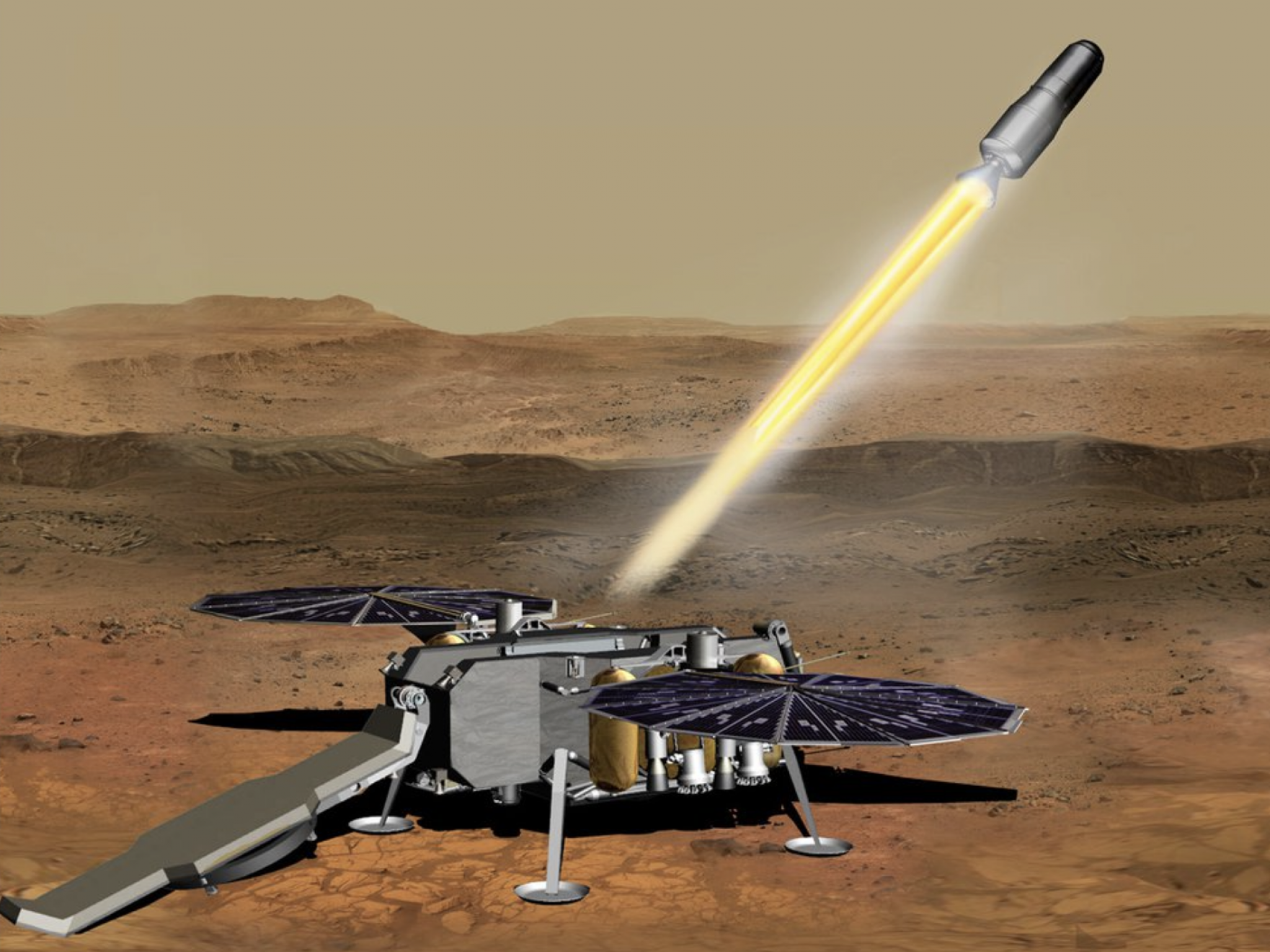
NASA has selected a space company to build a small, lightweight rocket capable of launching from Mars in order to carry samples of the Red Planet back to Earth. Sorry to disappoint Tesla Inc (NASDAQ:TSLA) fans, but no, it's not Elon Musk's SpaceX.
What Happened: NASA awarded aerospace and defense giant Lockheed Martin Corp (NYSE:LMT) with a contract to build its Mars Ascent Vehicle (MAV).
The contract is a big step in getting NASA closer to the first robotic round-trip, bringing samples safely to Earth through the Mars Sample Return program. If the program is successful, Lockheed Martin would become the first to launch a rocket from another planet.
From Last Week: NASA Picks Virgin Orbit To Provide Launch Services Through VADR Contract
"This groundbreaking endeavor is destined to inspire the world when the first robotic round-trip mission retrieves a sample from another planet – a significant step that will ultimately help send the first astronauts to Mars," NASA administrator Bill Nelson said.
NASA’s Perseverance rover is on Mars gathering samples right now. The space agency plans to send the MAV to Mars via a Sample Retrieval Lander, where it will collect the samples from Perseverance and then launch from the Red Planet. Once the MAV reaches Mars orbit, the samples will be captured by the Earth Return Orbiter spacecraft, which will return the samples to Earth for advanced study.
"We are nearing the end of the conceptual phase for this Mars Sample Return mission, and the pieces are coming together to bring home the first samples from another planet," said Thomas Zurbuchen, associate administrator for science at NASA Headquarters in Washington. "Once on Earth, they can be studied by state-of-the-art tools too complex to transport into space."
Why It Matters: Returning a sample from Mars is complicated. Lockheed Martin will face some complex development challenges as it builds out the MAV.
The Mars-bound vehicle needs to be able to withstand the harsh environment of the Red Planet, while being small enough to fit inside the Sample Retrieval Lander.
Lockheed Martin will have some time to develop the MAV. The performance period begins no later than Feb. 25 and will extend for six years. The Sample Retrieval Lander is expected to launch "no earlier than 2026," according to NASA. The MAV Integrated System contract has a potential value of $194 million.
The MAV development is just one part of the Mars Sample Return program, as more spacecraft will need to be built for the mission. It's possible that NASA could seek out other companies to help ready the space agency for the revolutionary campaign. NASA’s Mars Sample Return program ultimately aims to reveal the early evolution of Mars, including "the potential for life."
Photo: courtesy of NASA.







